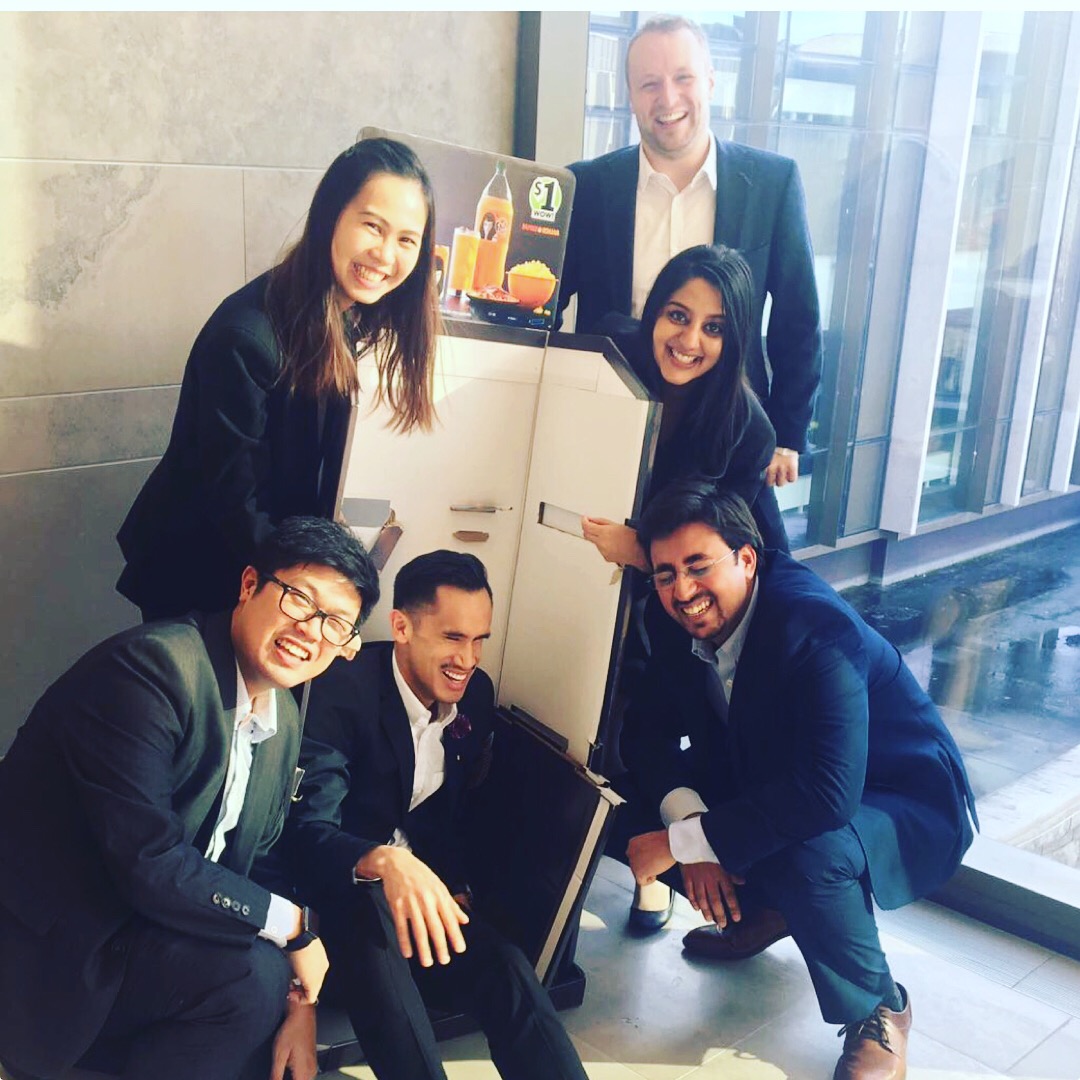It’s been just over a year since I wrote about finding my voice during Ivey’s MBA Program.
Since then, I’d say that my Ivey MBA journey surprisingly turned into an emotional intelligence boot camp. Analyzing data, prioritizing deadlines, making decisions, and working with various stakeholders became daily activities as we juggled 20 spinning plates across courses, study trips, and career searches.
Looking back, it seems like our class went through an emotional rollercoaster of highs, lows, and learnings. I feel like we were all running at 400 miles per hour, often unable to slow down to take it all in.
I personally struggled with finding time to reflect on what happened and what I could do better.
However, now that I have a bit of free time, I realize that so much of what we learned had less to do with the courses or the degree itself and more to do with what we learned from each other.
Throughout all the projects, papers, and exams, although our focus was on business management fundamentals, there were plenty of unexpected lessons surrounding emotional intelligence. Here are 3 key takeaways from the year:
1. Exchange emotional attachments for logical arguments.
One thing that became clear quite quickly was that I was not the smartest person in the room. Not even close.
During our 24-hour group reports, tensions would occasionally rise when two parties were found arguing differing viewpoints. The more ownership and emotional attachment one had to a specific perspective, the more heated the discussion would get.
Whenever I found myself in that position, I would have to remind myself to let go of my point and accept stronger logic, especially if I was getting overtly passionate and felt that I was right. This practice served two-fold: it would help me learn to let go of ego and it would also emphasize the value of relationships over being right.
Although this wasn’t always easy to follow through with, it was definitely critical to the collaborative group environment.
2. Always check in with your team.
As someone who has spent his career writing speeches and presenting pitches, I had the tendency to run with first drafts of my ideas, which seemed fair given the amount of time I’d invest in my work.
However, a big takeaway this year was to never act alone and to always check in.
Whether it was something as simple as an email or as complex as an hour-long presentation, we always got killed whenever we neglected to review our work.
After learning that painful lesson repeatedly this year, I found myself constantly relying on my team as a sounding board.
Reviewing work together before submission allowed us to ensure that our output was of the highest quality.
I understand that sometimes there are tight time constraints, making it impossible to sit down with others. In those cases, I would call one of my team members up to get a quick gut-check on whether I was on the right track with wording.
3. Seek emotional feedback after each project.
Have you ever asked someone if you could have done anything better on a project and they say, “No, you did great!”
For me, there’s nothing more frustrating.
Oftentimes, this is because people don’t want to offend you, especially if you haven’t worked together much.
In the month after we finished our classes, I reached out to every classmate that I had worked with and asked them if they were okay with offending me. Once they gave me the thumbs up, I asked them the following questions to obtain applicable feedback:
Describe a moment when I frustrated you. What could I have done differently to handle the situation better?
Describe a moment when you thought to yourself "I'm glad Jay is on my team." What particularly helped in a group environment?
You may notice that these are different ways of asking what my strengths and weaknesses are, but the wording is framed in such a way that allows peers to share an emotional response.
Emotions often make memories easier to remember and then it’s easier to provide tangible examples.
Carl Buehner was once quoted as saying, “They may forget what you said, but they will never forget how you made them feel.”
This rings especially true in group work. The examples that I got back were clear exhibits of what I was doing well and what I should avoid moving forward.
One of the tough things that I learned in this exercise is that recency is important. Because I asked for feedback after the year was over, there were several unclear examples as people moved on and forgot about things. Moving forward, I’d follow up one week post-project in order to get a frequent feedback loop for improvement.
Looking ahead
After looking back on the year, what I love most is how applicable these three takeaways are. Though this reflection seems so simple, I’m so grateful to have gone through the Ivey experience, and I feel well-equipped as I look ahead to the future.
Takeaways
- Exchange emotional attachment for logical arguments.
- Always check in with your team.
- Seek emotional feedback after each project.
Bonus: Although it's important to have fun with groups, remember that it's never wise to sit on cardboard displays, even if it claims it can hold your weight.

